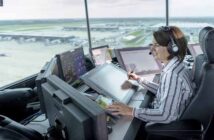
Ryanair has filed a civil case in the Irish Circuit Court against a disruptive passenger for €15,000 in damages.
The incident involved a flight from Dublin to Lanzarote that had to divert to Porto due to the passenger’s misconduct, causing significant inconvenience and financial loss for the airline and other passengers.
Ryanair maintains a strict zero tolerance policy towards unruly passengers, asserting that actions will be taken to ensure a respectful travel environment for the majority.
The airline claims that legal action against disruptive behaviour will serve as a deterrent for future incidents, ensuring a more enjoyable flying experience for all passengers.
It listed the costs as follows:
- Excess fuel €800
- Accommodation costs (pax & crew) €7,000
- Porto Airport landing/handling fees €2,500
- Loss of inflight sales €750
- Replacement crew costs €1,800
- Portuguese legal fees (to date) €2,500
- Total €15,350
Ryanair shared: “It is unacceptable that passengers – many of whom are heading away with family or friends to enjoy a relaxing Summer holiday – are suffering unnecessary disruption and reduced holiday time as a result of one unruly passenger’s behaviour. Yet this was regrettably the case for passengers on this flight from Dublin to Lanzarote last April, which was forced to divert to Porto as a result of an individual passenger’s disruptive behaviour, causing €15,000 in overnight accommodation, passenger expenses, and landing costs. We have now filed civil proceedings to recover these costs from this passenger. This demonstrates just one of the many consequences that passengers who disrupt flights will face as part of Ryanair’s zero tolerance policy, and we hope this action will deter further disruptive behaviour on flights so that passengers and crew can travel in a comfortable and respectful environment.”
Michael O’Leary told a recent press conference: We and EasyJet, as well as other airlines, have seen a big spike in diversions for offloading disruptive passengers. This is a serious question that needs addressing. If it costs us some money in flight sales, my view is that if they can only have two alcoholic drinks, they might opt for a cup of tea or something non-alcoholic instead. We just need to be a bit more sensible about it. We don’t want to ban drinking or people’s enjoyment; we just need better behavior on board. There are suggestions that we should prevent certain passengers from flying. The reality is, when they board, they can often appear fine, but then end up falling over. If that’s the case, we take them off the flight. But banning them doesn’t usually work; people can easily just change their names or use fake passport numbers to rebook. We do everything we can; typically, how many people do we ban in a month varies. The numbers are larger in summer because people are traveling to party destinations.On average, we see several passengers every week who fall into that disruptive category, which is regrettable. We implement one-year and five-year bans, but they are often ineffective. Our security measures now require us to search everyone’s bags as they board the aircraft, confiscating any bottles or anything similar.
We do everything possible as an airline, particularly last summer, when more passengers are consuming excessive alcohol at airports. We don’t want to ban alcohol entirely at airports, but we just need a bit of moderation so that everyone can have a pleasant experience on board. This is particularly important for our crews; they should not have to deal with assaults or dangerous situations.
In autumn, there was an incident where a man tried to open the emergency exit while intoxicated. Thankfully, he was restrained by other passengers and our crew. Our crews shouldn’t have to manage that kind of misbehavior, but they are increasingly facing it, and it needs to be addressed.
The authorities are doing what they can, but I’d suggest it wouldn’t be too much of an ask to close bars until 11:00 or 12:00 at airports. Initially, we allowed passengers to bring duty-free on board, but now we restrict that. We even had cases where people fill water bottles with vodka. Now, we don’t allow passengers to bring any bottles onto the aircraft.
We won’t serve anyone alcohol if we believe they’re already intoxicated. Our crews want to work in a safe environment, and we’re doing everything we can to address this issue.
It’s not just one or two cases of misbehavior on a flight of 100; it becomes a very unpleasant experience when someone is drunk, shouting, screaming, or fighting. Our passengers and crews don’t want to be in that environment, and we need more help from the authorities.
The police are terrific, but often when we land somewhere in Spain or need to divert, the drunk passenger is arrested by the local constabulary. However, they are usually released the following day because the authorities don’t want the difficulty of charging them. What are they going to do—put him in jail? So they let him sober up, and then we are still dealing with the aftermath.
It’s very difficult, and this is a real challenge for not just us, but for all airlines. We’re not trying to limit anybody’s drink consumption, but we ask passengers to limit themselves to two drinks at the airport. We already restrict duty-free sales at the airport, which require showing your boarding pass, and we think we should do the same with alcoholic drinks. If you want more than two drinks, you should show your boarding pass. Yes, there will always be exceptions, but we just need to throttle back a bit on the amount of drinking that’s happening.
Personally, I’m very fond of a drink, but I don’t understand why bars at airports open at 7:00 in the morning. We don’t open normal pubs here until 11:00 or 12:00. Why are the bars open at 7:00 a.m. and 5:00 a.m.? It’s not a big ask. I was told, “Why don’t you limit on board?” Well, we would happily limit passengers to two drinks on board our aircraft, but it would cost us money. Our average flight time is about 1 hour and 15 minutes, and very few people buy or consume more than two alcoholic drinks in that time. If someone is misbehaving on board, our crew doesn’t serve them anyway.
We need to tackle this issue. I remember the good old days when you’d get on a BAC 111 with a smoking cabin at the back. It’s unimaginable now that people would light up a cigarette on board; yet we think nothing of letting people drink alcohol and then get on the aircraft. The vast majority, 98pc of people, are not a problem—they have one or two drinks with no issue. But for those who overindulge, we particularly see this on routes to party islands and certain Greek islands where things can get out of control. Our crews are very well trained and handle it well, but they can’t control everyone.
We are in favour of a cap of two alcoholic drinks at the airports. The big problem, which all airlines are struggling with at the moment, is a significant rise in disruptive behavior by passengers on board aircraft. A lot of this is associated with the fact that we’ve had areas that suffered huge ATC delays this summer. ATC is short-staffed; typically, only 9pc of our flights in summer 2023 were delayed due to ATC, but this year, 24pc of our flights faced ATC delays. When flights run late, particularly on the first wave, people are in the bars at the airports consuming alcohol.




